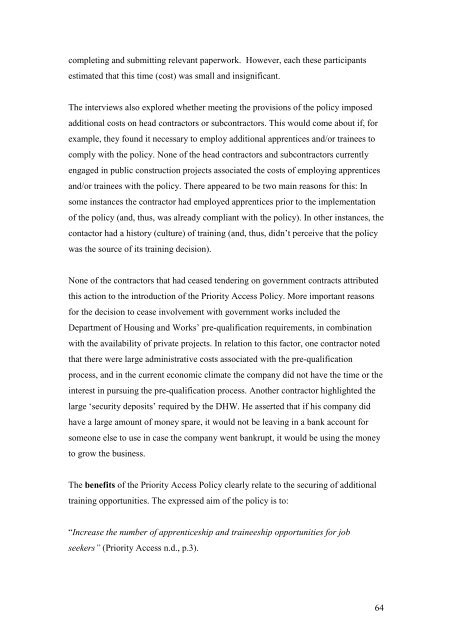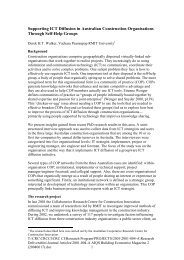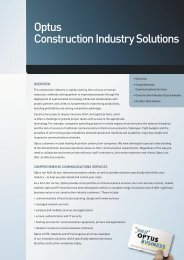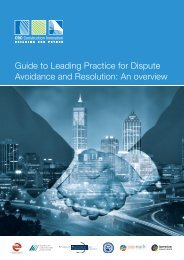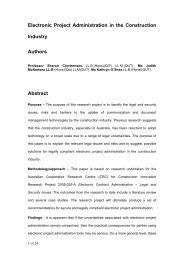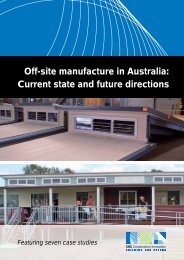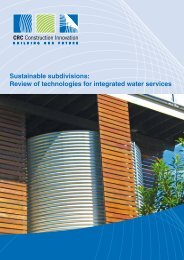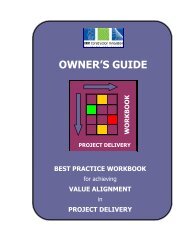Multi Outcome Construction Policy (final report)
Multi Outcome Construction Policy (final report)
Multi Outcome Construction Policy (final report)
You also want an ePaper? Increase the reach of your titles
YUMPU automatically turns print PDFs into web optimized ePapers that Google loves.
completing and submitting relevant paperwork. However, each these participantsestimated that this time (cost) was small and insignificant.The interviews also explored whether meeting the provisions of the policy imposedadditional costs on head contractors or subcontractors. This would come about if, forexample, they found it necessary to employ additional apprentices and/or trainees tocomply with the policy. None of the head contractors and subcontractors currentlyengaged in public construction projects associated the costs of employing apprenticesand/or trainees with the policy. There appeared to be two main reasons for this: Insome instances the contractor had employed apprentices prior to the implementationof the policy (and, thus, was already compliant with the policy). In other instances, thecontactor had a history (culture) of training (and, thus, didn’t perceive that the policywas the source of its training decision).None of the contractors that had ceased tendering on government contracts attributedthis action to the introduction of the Priority Access <strong>Policy</strong>. More important reasonsfor the decision to cease involvement with government works included theDepartment of Housing and Works’ pre-qualification requirements, in combinationwith the availability of private projects. In relation to this factor, one contractor notedthat there were large administrative costs associated with the pre-qualificationprocess, and in the current economic climate the company did not have the time or theinterest in pursuing the pre-qualification process. Another contractor highlighted thelarge ‘security deposits’ required by the DHW. He asserted that if his company didhave a large amount of money spare, it would not be leaving in a bank account forsomeone else to use in case the company went bankrupt, it would be using the moneyto grow the business.The benefits of the Priority Access <strong>Policy</strong> clearly relate to the securing of additionaltraining opportunities. The expressed aim of the policy is to:“Increase the number of apprenticeship and traineeship opportunities for jobseekers” (Priority Access n.d., p.3).64


